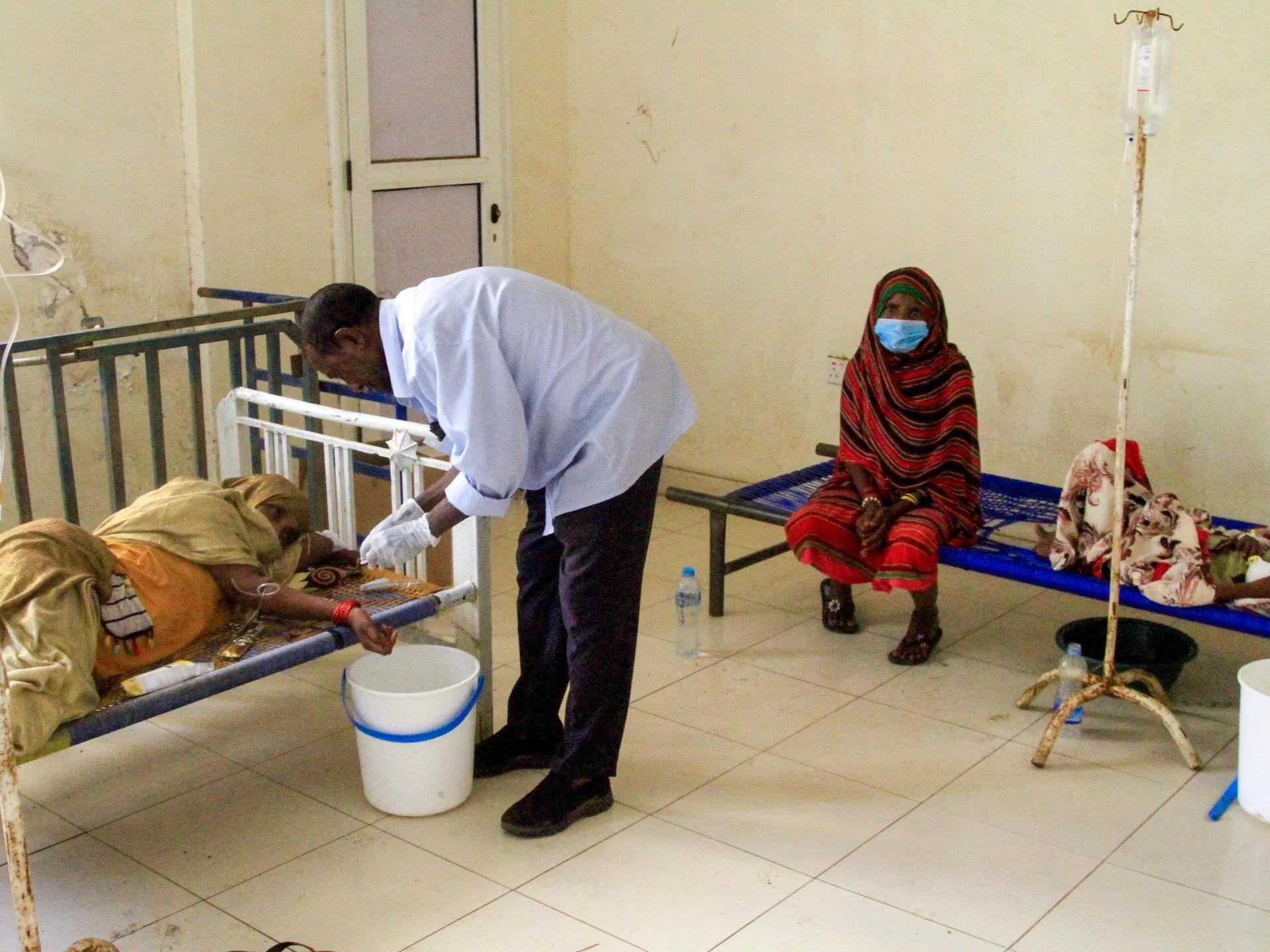Haitham Mohamed Ibrahim has declared a cholera epidemic due to contaminated drinking water and weather conditions.
Sudan has been stricken by a cholera outbreak that has killed nearly two dozen people and sickened hundreds more in recent weeks, health authorities said.
Health Minister Haitham Mohamed Ibrahim said in a statement on Sunday that at least 22 people have died from the disease, and that at least 354 confirmed cases of cholera have been detected across the war-torn country in recent weeks.
On Saturday, he declared a cholera epidemic in Sudan and noted that the outbreak was “because of the weather conditions and because drinking water has been contaminated”.
He said the decision was taken in conjunction with authorities in the eastern state of Kassala, United Nations agencies and experts after the “discovery by the public health laboratory of the cholera virus”.
An official from the World Health Organization (WHO), Margaret Harris, said in a media call on Friday that 11,327 cholera cases with 316 deaths had been reported in Sudan so far.
“We expect to have more than has been reported,” she added.
Cholera is a fast-developing, highly contagious infection that causes diarrhoea, leading to severe dehydration and possible death within hours when not treated, according to the WHO. It is transmitted through the ingestion of contaminated food or water and can kill within hours without treatment. Children under five are at particular risk.
Cholera is not uncommon in Sudan. A previous major outbreak left at least 700 dead and sickened about 22,000 in less than two months in 2017.
But the outbreak of the disease is the latest calamity for the region.
Devastating seasonal floods in recent weeks have also compounded the misery. Dozens of people have been killed and critical infrastructure has been washed away in 12 of Sudan’s 18 provinces, according to local authorities. About 118,000 people have been displaced due to the floods, according to the United Nations’ migration agency.
To complicate the situation, the civil war, which began in April last year when simmering tensions between the military and a powerful paramilitary group exploded into open warfare across the country, has plunged the region into chaos.
The Sudanese Armed Forces (SAF), led by Abdel Fattah al-Burhan, and the Rapid Support Forces (RSF) – under Mohamed Hamdan Dagalo, better known as “Hemedti” – have been vying for power and control of the African country of 46 million people.
The conflict has turned the capital Khartoum and other urban areas into battlefields, wrecking civilian infrastructure and an already battered healthcare system. Without the basics, many hospitals and medical facilities have closed their doors.
The war has also killed thousands of people, displaced more than 10.7 million people and pushed many into starvation, with famine already confirmed in a sprawling camp for displaced people in the wrecked northern region of Darfur.
A new round of talks aimed at ending the 16-month conflict in Sudan began in Switzerland on Wednesday, despite the army’s absence.
The United States, Saudi Arabia, Switzerland, the African Union, Egypt, the United Arab Emirates and the United Nations are trying to steer the Sudanese army and the RSF into ceasefire talks.
On Sunday, Sudan’s military-controlled sovereign council said it will send a government delegation to meet with US officials in Cairo amid mounting US pressure on the military to join the ongoing truce talks in Switzerland.
